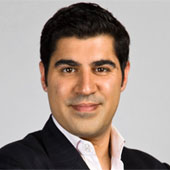Europe’s Declaration of Independence
In what areas does Europe surpass the United States?
May 23, 2008
What was one of the most surprising findings in the process of writing the book?
“The EU is now the most confident economic power in the world. With superior commercial and environmental standards, the European nations have assumed global leadership.
“That is only further borne out by the current U.S. credit crisis, which certainly also affects the Europeans — but points to significant weaknesses in the U.S. regulatory system.”
How do Europeans generally view the United States today?
“Many Europeans view America’s current way of life as deeply corrupt, built on borrowed money, risky and heartless in its lack of social protections — and ecologically catastrophic. Those are sentiments that won’t just vanish with a new administration coming to office in the Untied States.”
How did the Europeans pull off their own economic revival?
“EU expansion has become a virtuous circle of tapping new markets. That, in turn, has helped to decrease dependence on exports to the United States — a crucial step in building an independent superpower.
“The fresh blood of the EU’s new members has generated a competitive federalism that boosts the European economy as a whole.”
What is particularly remarkable about the EU’s approach to world affairs?
“In an intriguing way — and one that must be galling to many U.S. strategists — the EU is easily the most popular and successful empire in history.
“Why? Because it does not dominate, it disciplines. The incentives of Europeanization — subsidies from Brussels, unfettered mobility and the adoption of the Euro currency — are too great not to want.”
How did the EU go about strengthening its influence in other continents? And how does that compare to the efforts of the United States?
“The EU is a far larger humanitarian aid donor than the United States. South America, East Asia and other regions actually prefer to emulate the ‘European Dream’ rather than the American variant.
“And let’s remember, the London-based Financial Times is the world’s most widely circulated newspaper — not The New York Times.”
Where do things stand at the end of the Bush Administration?
“EU expansion is a gamble that is both more expensive and ultimately more expansive than America’s war in Iraq — but one that is actually paying off.”
How did the U.S.-led war in Iraq solidify the EU’s belief that a non-military approach to expanding its influence is the most sensible?
“For many Europeans, the U.S.-led war in Iraq validated their view that war is not an instrument of policy — rather, a sign of its failure. The backlash against the United States that inspired al-Qaeda attacks on European soil has heightened their disdain for the U.S. approach to confronting troubled states, while inspiring them to elevate their own strategy of sustainable transformation.”
Has this view ultimately changed the European-American relationship?
“It is often said in Washington that the United States and Europe make for a strong team because ‘America breaks — and the EU fixes.’ Others argue that the United States ‘lays down the law’ — while Europe ‘lays down the rule of law.’
“This cliché has long grated on Europeans, who would rather spread their version of stability — rather than being called in as a clean-up crew after the United States has destabilized countries on its periphery, particularly in the Arab world. As far as I can see, transatlantic relations may be an arranged marriage, but the United States and EU will continue to act as if they are divorced.”
How big a problem is Russia for the EU?
“Russia is often portrayed as having Europe over a barrel because of its oil and gas reserves, but there are limits to Russia’s ability to bite the hand that feeds it.”
So is the EU the key player in Russia’s relationship with the West — both today and in the future?
“Yes, it is the EU that prevents Russia from ever having a veto over the West, and it is also the EU that can make Russia join the West — and, in doing so, save it from itself.”
How has the increase in the presence of minority groups, especially from Muslim countries, affected Europe?
“Europe already is partially Islamic, with growing Muslim populations in England, France and Germany — and almost 100 million Muslims from Albania, Bosnia, Turkey and Azerbaijan in the European diplomatic and strategic space via the Council of Europe or NATO.”
How do European policymakers plan to cope?
“What the EU’s strategic guru Robert Cooper calls the ‘new European commonwealth’ has come to embody an ancient imperial truism that the Romans, Mongols and Ottomans understood but the Soviet Union never did: A successful empire cannot be racist.”
And in what ways do EU leaders plan to spread that sentiment in the future?
“An entire post-Cold War generation of students — called the “ERASMUS generation” after the EU’s exchange program — is transcending the very national identities their elders fought to establish, all for the sake of European stability.
“These ‘post-national’ European youth from almost 30 countries now travel virtually visa-free from Belfast to Baku, speak multiple languages, study in continent-wide exchange programs, vote in European parliamentary elections — and are intermarrying into a diverse European society.”
Takeaways
For many Europeans, the U.S.-led war in Iraq validated their view that war is not an instrument of policy — rather, a sign of its failure.
With superior commercial and environmental standards, the European nations have assumed global leadership.
Many Europeans view America's current way of life as deeply corrupt, built on borrowed money, risky and heartless in its lack of social protections — and ecologically catastrophic.
The EU is easily the most popular and successful empire in history. Why? Because it does not dominate, it disciplines.
Read previous
The Russian Challenge
May 22, 2008
